A journalist is a media personality who is responsible to research and inquire about the truth and bring all information in the eyes of masses honestly. To be fair and unbiased is the first and foremost duty of every journalist. Their duties include interviewing experts, gathering first-hand accounts of events and organizing an outline into a cohesive, interesting story. They have a great power to not only educate but also resolve may unsolved riddles of society. The integrity and courage of journalists in pursuing their duties ensure that the powerful are held accountable, and that the public remains informed about issues that impact their lives.
Key Responsibilities of A Journalist
The responsibilities of a good journalist are numerous and multifaceted, encompassing ethical, professional, and social dimensions. Here, we explore these responsibilities in detail.
1. Truth and Accuracy
The foremost responsibility of a journalist is to ensure the accuracy of their reporting. This involves thorough research, fact-checking, and corroborating information from multiple reliable sources. Journalists must strive to present an accurate and truthful account of events, avoiding the dissemination of false or misleading information.
Key Roles
- Double-checking facts and figures.
- Consulting primary sources and verifying claims.
- Using reliable and credible sources.
2. Fairness and Impartiality
A good journalist should report stories without bias, presenting multiple perspectives to provide a balanced view. Fairness involves giving subjects of news stories an opportunity to respond and ensuring that personal opinions do not color reporting.
Key Roles
- Avoiding conflicts of interest.
- Providing balanced coverage with multiple viewpoints.
- Disclosing any potential biases or affiliations.
3. Ethical Standards
Journalists must adhere to high ethical standards, which include respecting the privacy and dignity of individuals, avoiding sensationalism, and steering clear of plagiarism. Ethical journalism fosters trust and credibility.
Key Roles
- Maintaining confidentiality of sources when necessary.
- Avoiding sensationalist reporting.
- Crediting all sources and avoiding plagiarism.
4. Accountability
Journalists are accountable to their audience, sources, and themselves. They must be willing to correct errors and address complaints promptly. Accountability also means being transparent about the limitations and processes of reporting.
Key Roles
- Issuing corrections and clarifications when errors occur.
- Being transparent about methodologies and limitations.
- Engaging with audience feedback and criticism.
5. Independence
Journalists should operate independently, free from undue influence by advertisers, political entities, or special interest groups. Independence ensures that the information provided is not compromised by external pressures.
Key Roles
- Avoiding accepting gifts or favors from sources or stakeholders.
- Separating editorial content from advertising.
- Resisting pressure from powerful entities to alter or suppress stories.
6. Public Interest
A good journalist prioritizes the public interest over sensationalism or personal gain. This involves covering stories that have significant social, political, or economic impact, and highlighting issues that affect the public welfare.
Key Roles
- Focusing on stories that have substantial societal impact.
- Investigating and reporting on issues of public concern.
- Giving voice to the marginalized and underrepresented communities.
7. Integrity and Courage
Journalists often face challenging and sometimes dangerous situations. Integrity and courage are essential traits, enabling journalists to pursue the truth even in the face of threats, intimidation, or personal risk.
Key Roles
- Standing firm in the face of threats or bribes.
- Reporting from conflict zones or areas of crisis.
- Exposing corruption and wrongdoing despite potential repercussions.
8. Context and Analysis
Beyond reporting facts, journalists have the responsibility to provide context and analysis. This helps the audience understand the significance of events, trends, and issues, making complex subjects accessible and comprehensible.
Key Roles
- Providing historical background and context to current events.
- Analyzing data and trends to offer deeper insights.
- Using expert commentary to enhance understanding.
9. Responsibility to Educate
Journalism has an educational role, helping to inform and educate the public on important issues. This includes simplifying complex topics, debunking misinformation, and raising awareness about critical matters.
Key Roles
- Breaking down complex issues into understandable segments.
- Creating educational content and explainers.
- Correcting misinformation and debunking myths.
10. Respect for Privacy
While the public has the right to be informed, journalists must balance this with respect for individuals’ privacy. Intrusive reporting can cause harm, and ethical journalists navigate this balance carefully.
Key Roles
- Avoiding unnecessary intrusion into private lives.
- Seeking consent when dealing with sensitive personal stories.
- Being mindful of the potential harm to individuals when reporting.
Conclusion
So to conclude, we can safely conclude that responsibilities of a good journalist are extensive and essential for the health of a democratic society. By upholding truth and accuracy, fairness, ethical standards, accountability, independence, and prioritizing the public interest, journalists contribute to an informed and engaged populace As the landscape of media continues to evolve, the core responsibilities of journalism remain a cornerstone of its practice, ensuring that it continues to serve as a vital pillar of democracy.

